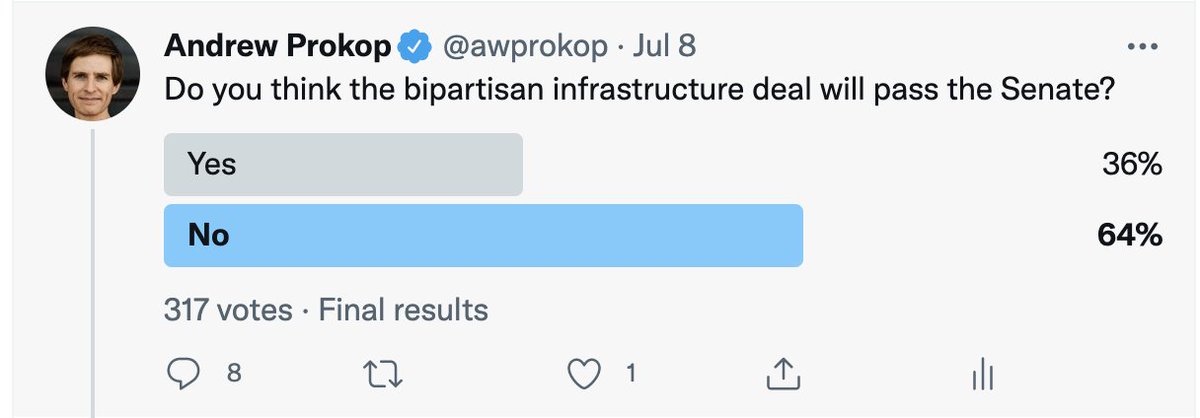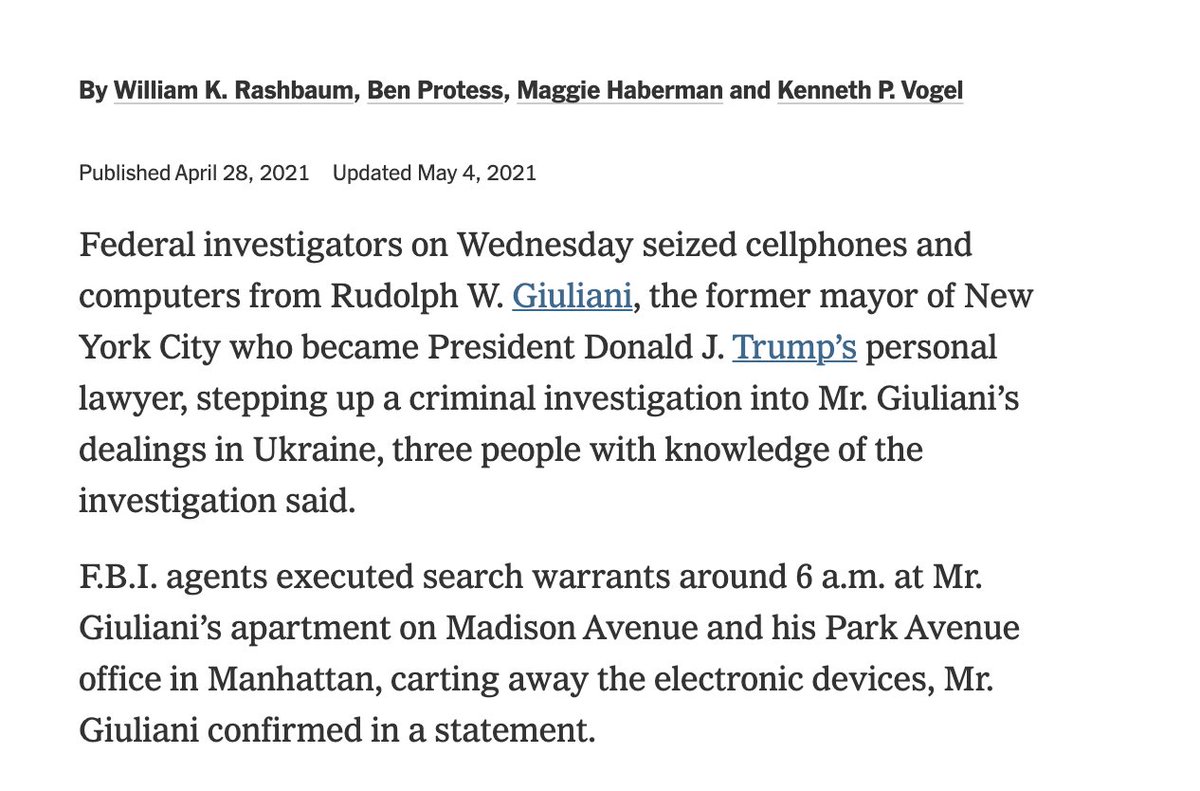
Senate's imminent passage of infrastructure bill seems to defy many of liberals' heuristics about "how things work" (that all negotiations from Republicans are insincere ploys, that polarization makes bipartisan achievements impossible, that personal relationships don't matter)
FWIW my take a few months back was that:
1. Certain issues (voting rights, immigration) are so polarized that compromise really is impossible
2. On other issues, bipartisanship can be achievable, though it might involve compromises progressives don't love
vox.com/22339531/manch…
1. Certain issues (voting rights, immigration) are so polarized that compromise really is impossible
2. On other issues, bipartisanship can be achievable, though it might involve compromises progressives don't love
vox.com/22339531/manch…

But many people insisted for months that this was obviously doomed and anyone who thought otherwise was a fool. When there's a surprising outcome, good to take note and update your mental model of the world, at least a bit. 

Around 3 Senate Republicans who went from "maybe yes to no" in the final hours got a ton of coverage, but there were 19 who did end up voting yes which is... a lot
https://twitter.com/TheStalwart/status/1425136476682084355
• • •
Missing some Tweet in this thread? You can try to
force a refresh








